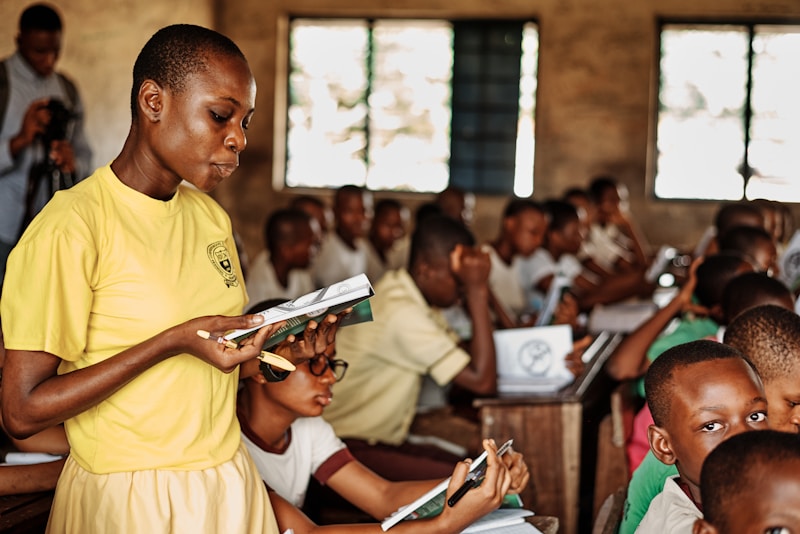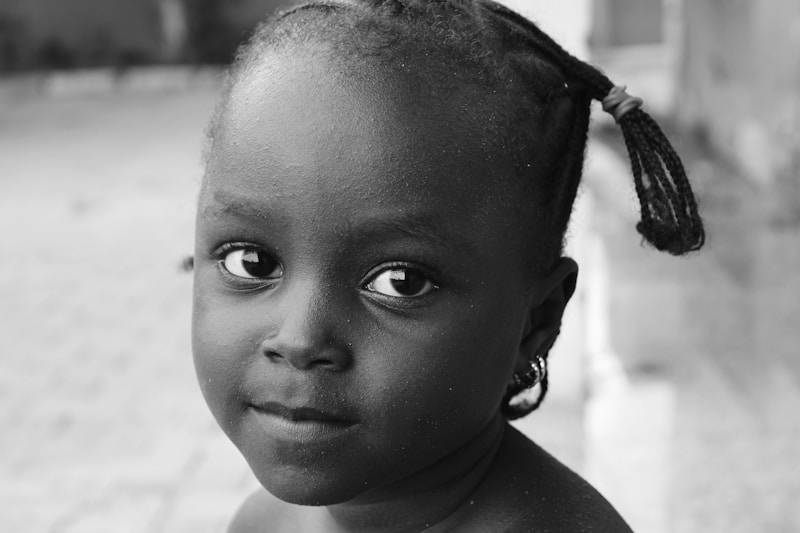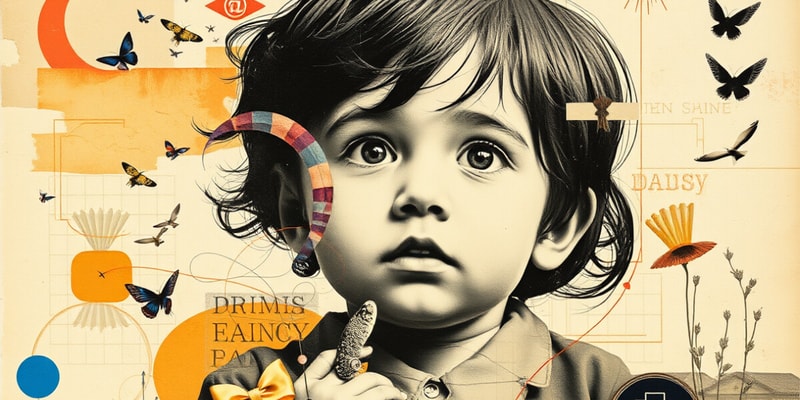Podcast Beta
Questions and Answers
What is emphasized in the concept of the 'Whole Child' approach to early development?
Which period of development is characterized by the psychosocial crisis of 'Trust vs. Mistrust'?
Which developmental stage focuses on the struggle between 'Autonomy vs. Shame/Doubt'?
What are the domains of development typically considered in early childhood?
Signup and view all the answers
What critical theme is often explored in cultural perspectives on childhood?
Signup and view all the answers
How do previous perspectives shape early childhood education practices?
Signup and view all the answers
What aspect of 'Industry vs. Inferiority' is often addressed during early school age?
Signup and view all the answers
What is a key focus of developmentally appropriate practices in early childhood education?
Signup and view all the answers
What is the primary focus of child development theories?
Signup and view all the answers
Who is known for the theory of psychosocial development that addresses the entire lifespan?
Signup and view all the answers
Which theory emphasizes the importance of observation and reinforcement in learning?
Signup and view all the answers
Which developmental theory suggests that children learn effectively through social interaction?
Signup and view all the answers
What is the primary developmental task during infancy according to Erik Erikson?
Signup and view all the answers
What is one implication of understanding child development theories for educators?
Signup and view all the answers
What can result from caregivers failing to provide a secure environment for an infant?
Signup and view all the answers
Which theory posits that intelligence is not fixed and can be developed through effort?
Signup and view all the answers
What is a central contribution of Piaget's Cognitive Theory?
Signup and view all the answers
How do trusting caregivers contribute to a child's autonomy during toddlerhood?
Signup and view all the answers
What feelings can restrictive caregiving instill in children?
Signup and view all the answers
In which theory are environmental factors considered crucial to a child's learning and development?
Signup and view all the answers
What challenge do preschoolers face according to the content provided?
Signup and view all the answers
What behaviors might emerge in preschoolers who are frustrated while planning?
Signup and view all the answers
What can occur if caregivers neglect to meet a child's basic needs?
Signup and view all the answers
In the context of child development, what is crucial for the emergence of initiative in preschoolers?
Signup and view all the answers
What must be satisfied before individuals can attend to higher-level needs in Maslow's hierarchy?
Signup and view all the answers
Which of the following is NOT a component of physiological needs according to Maslow's theory?
Signup and view all the answers
At which level of Maslow's hierarchy do needs for friendship and belonging fall?
Signup and view all the answers
Maslow identified which two categories under esteem needs?
Signup and view all the answers
How does Maslow's hierarchy describe an individual's movement between the levels?
Signup and view all the answers
What is the primary objective when safety needs are being met?
Signup and view all the answers
Which of the following best describes self-actualization needs?
Signup and view all the answers
What is considered the lowest level of Maslow's hierarchy?
Signup and view all the answers
What is the primary focus of children in the sensorimotor stage?
Signup and view all the answers
Which of the following correctly represents the order of Piaget's stages of cognitive development?
Signup and view all the answers
What characteristic of knowledge in the sensorimotor stage is highlighted by Piaget?
Signup and view all the answers
How does Piaget view the progression through his stages of cognitive development?
Signup and view all the answers
In the context of cognitive development, what do constructivists argue?
Signup and view all the answers
What does Piaget indicate about the abilities of infants at the sensorimotor stage?
Signup and view all the answers
At what age does the sensorimotor stage typically occur?
Signup and view all the answers
What is a notable behavior of infants that signifies their cognitive development during the sensorimotor stage?
Signup and view all the answers
Study Notes
Introduction to Early Childhood Development
- Importance of understanding the holistic development of children from conception through childhood.
- Includes physical, cognitive, social, and emotional growth factors.
- Emphasis on how various theories aid in understanding child behavior and development.
Key Developmental Theories
-
Psychosocial Theory (Erikson):
- Focuses on development across a lifespan, with trust vs. mistrust as the foundation in infancy.
- Successful nurturing leads to trust; failure results in feelings of mistrust and insecurity.
-
Behaviorist Theory:
- Focuses on observable behaviors and the impact of environmental stimuli.
-
Social Cognitive Theory:
- Emphasizes learning through observation and social interaction.
-
Cognitive Theory (Piaget):
- Proposes four stages of cognitive development: sensorimotor, preoperational, concrete operational, and formal operational.
- Knowledge is actively constructed by the child through experiences.
-
Sociocultural Theory:
- Highlights the influence of culture and social interaction on learning and development.
-
Humanistic Theory (Maslow):
- Suggests a hierarchy of needs, emphasizing that lower-level needs must be met before higher-level needs can be pursued.
-
Ecological Theory:
- Examines interactions between children and their diverse environments.
-
Multiple Intelligence Theory:
- Proposes that intelligence is multi-faceted, encompassing a range of abilities.
-
Growth Mindset Theory:
- Encourages the belief that intelligence and abilities can be developed through effort and learning.
-
Bloom’s Taxonomy:
- Framework for categorizing educational goals and objectives, focusing on higher-order thinking skills.
Developmental Stages According to Erikson
-
Trust vs. Mistrust (Infancy):
- Infants learn to trust caregivers through consistent care and affection.
- Mistrust arises when basic needs are unmet.
-
Autonomy vs. Shame/Doubt (Toddlerhood):
- Development of independence is fostered by supportive caregivers.
- Overly restrictive parenting can instill feelings of shame and self-doubt.
-
Initiative vs. Guilt (Preschool Years):
- Preschoolers develop planning and judgment; frustrations can cause negative behaviors.
- Development of initiative may lead to guilt if control is perceived as lacking.
Cognitive Development (Piaget)
-
Sensorimotor Stage (Birth to Age 2):
- Focuses on motor control and learning about physical objects through sensory experiences and interactions.
-
Young Children's Learning Process:
- Encourages exploration and experimentation in early childhood to enhance cognitive abilities.
Maslow's Hierarchy of Needs
-
Physiological Needs:
- Biological requirements for survival must be prioritized.
-
Safety Needs:
- Includes security and protection from danger once physiological needs are met.
-
Love and Belonging:
- Interpersonal relationships and a sense of belonging are crucial for social development.
-
Esteem Needs:
- Involves self-respect and the need for respect from others, influencing motivation and behavior.
Educational Implications
- Understanding these theories provides valuable insights for educators.
- Helps to create developmentally appropriate practices that support children's growth across multiple domains.
Studying That Suits You
Use AI to generate personalized quizzes and flashcards to suit your learning preferences.
Related Documents
Description
Explore the principles of child development during the early years, focusing on various aspects that contribute to a child's growth and well-being. This quiz is based on insights from 'The Whole Child: Development in the Early Years' by Doris Buckley and Deirdre Budzyna, and encourages reflection on educational equity and the holistic approach to child development.





